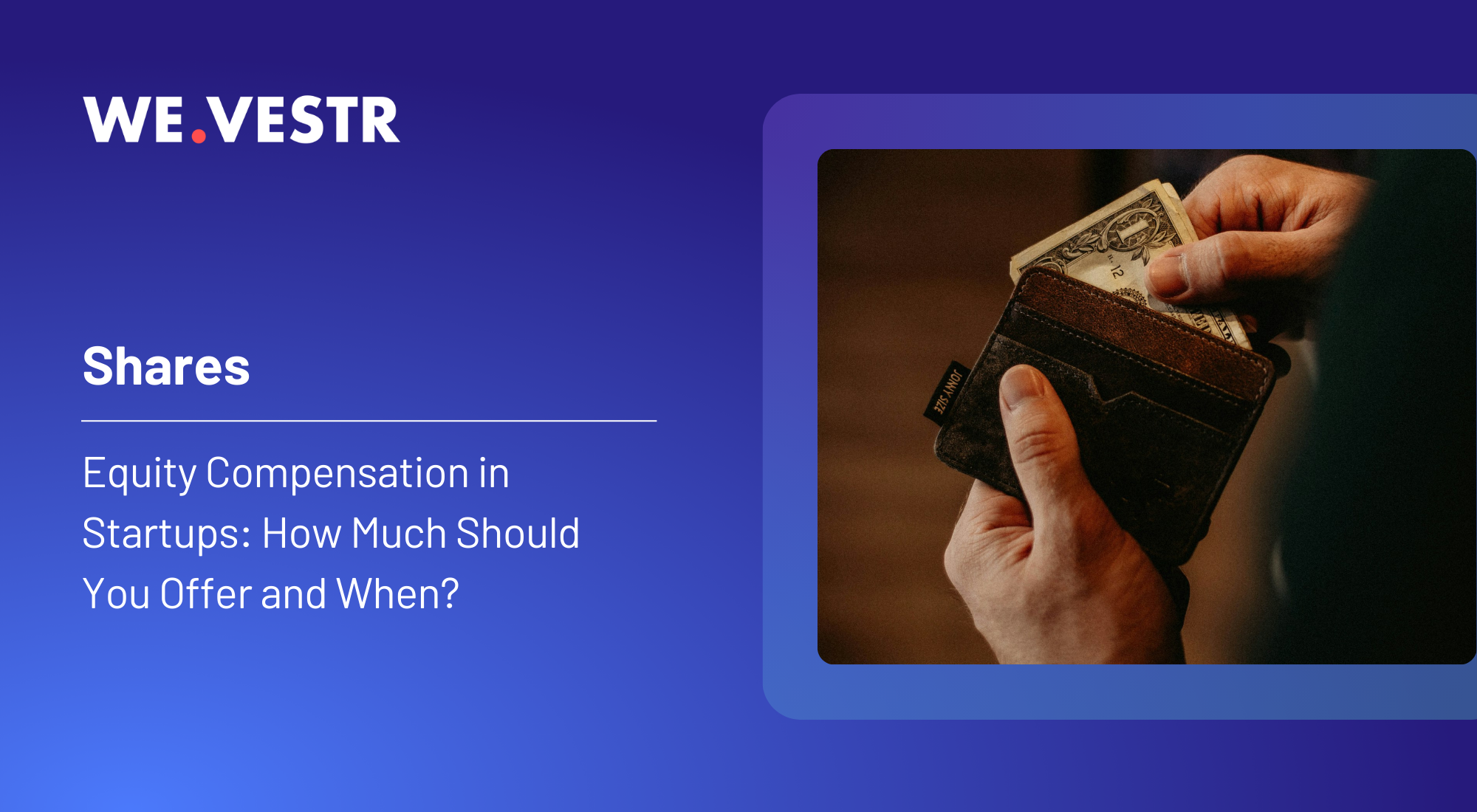Equity Compensation in Startups: How Much Should You Offer and When?

Equity compensation is a powerful tool for startups to attract and retain talent, especially when cash is tight. But how do you know how much equity to offer and when? The answer can vary depending on your company’s stage, industry, and growth trajectory. This guide explores key considerations for equity offers so founders can approach these decisions with clarity.
What Is Equity Compensation and Why Is It So Important?
Offering employees or advisors equity gives them a stake in your company’s success. Equity grants create alignment, incentivising everyone to work towards long-term growth rather than short-term gains. When used thoughtfully, equity compensation can attract top talent and foster loyalty, which is critical for startups with big visions but limited resources.
Determining How Much Equity to Offer
Here’s a practical breakdown of how much equity to offer different types of hires at various stages of growth:
- Co-Founders and Early Employees: In early stages, equity stakes are often larger to compensate for high risk. Founders typically split initial equity among themselves, while early employees may receive between 0.5% and 5%, depending on role and experience.
- Mid-Stage Hires and Key Executives: As your company progresses, equity offers shift. Key hires in product, engineering, and executive roles may be offered 0.1% to 1% with an emphasis on vesting schedules to ensure commitment.
- Advisors and Consultants: Advisors might receive smaller, one-time equity grants, typically 0.1% to 1%, often vested over a shorter period, such as one year.
When Is the Best Time to Offer Equity?
Timing is key with equity. Here’s what to consider:
- During Hiring Negotiations: Make equity part of the initial offer, clearly communicating its potential value alongside the vesting schedule.
- At Key Funding Milestones: Equity can be recalibrated when closing a new funding round, but be mindful of dilution and communicate changes transparently to avoid misunderstandings.
- As Part of Retention Strategies: Equity refresh grants, or additional stock options, can be offered to high-performing employees periodically to enhance retention.
Vesting Schedules and Cliffs: Critical for Stability
Equity offers typically come with vesting schedules, which outline how and when an employee “earns” their equity. A standard four-year vesting schedule with a one-year cliff (where no equity is earned until the employee completes their first year) is common and helps prevent instability from early departures.
Communicating the Value of Equity Compensation
Equity compensation is complex and can be confusing, especially for employees unfamiliar with startup equity structures. To avoid miscommunication, consider these approaches:
- Transparency and Clarity: Use simple terms to explain vesting schedules, potential dilution, and how stock options might convert to cash in an exit scenario.
- Highlight Long-Term Value: Emphasise the potential upside, especially for early employees who may one day own a meaningful portion of the company.
Ultimately, thoughtfully structured equity compensation is essential for attracting, motivating, and retaining the talent needed to grow your startup. By considering the stage, role, and market conditions, founders can create a compelling equity offer that aligns with company goals and employee expectations.
